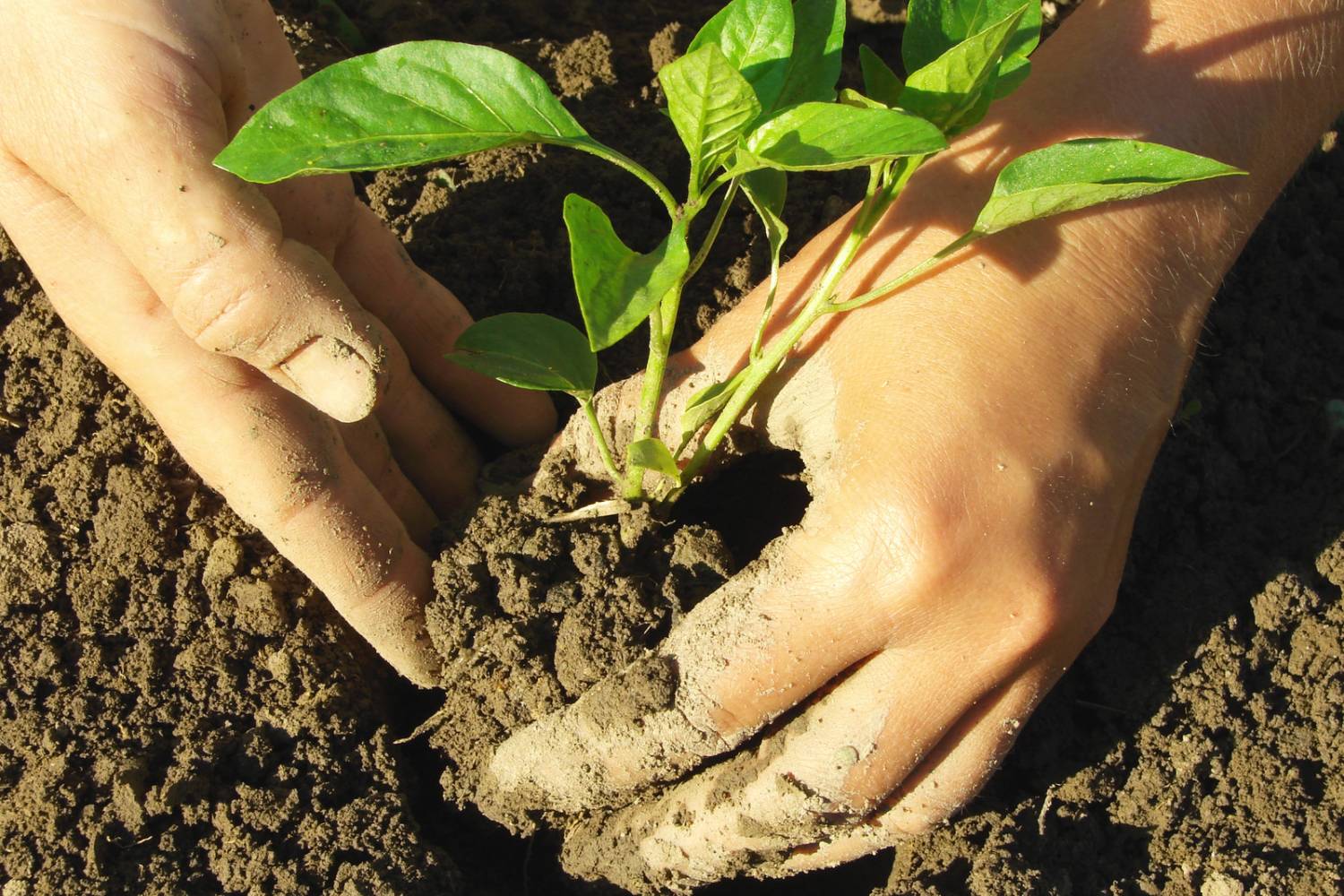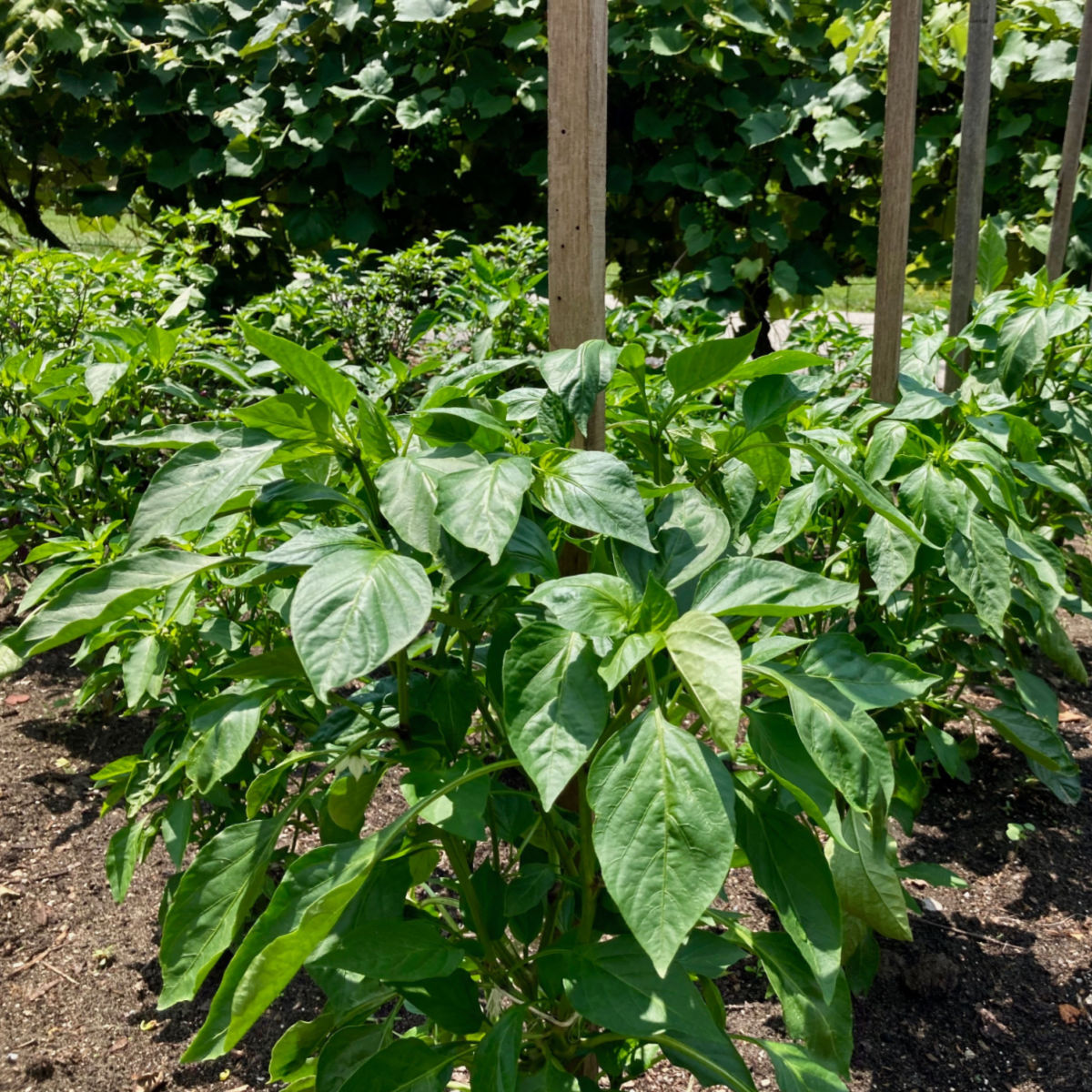Best Fertilizers for Peppers: Make Best Use Of Plant Health and Yield
Best Fertilizers for Peppers: Make Best Use Of Plant Health and Yield
Blog Article
Organic Vs. Synthetic Fertilizers: Which Is Best for Nurturing Healthy Pepper Plants?
In the world of nurturing healthy and balanced pepper plants, the choice between natural and synthetic plant foods stands as a pivotal decision with significant ramifications. While both alternatives goal to offer vital nutrients to support plant growth, the subtleties of their impact on the dirt, plant health, and the environment stimulate a discussion that mirrors throughout the gardening community. Recognizing the distinct benefits and potential risks of each fertilizer type is critical for pepper farmers looking for to maximize their returns while maintaining an eco-conscious and lasting technique.
Benefits of Organic Plant Foods
Organic fertilizers use an environmentally-friendly and sustainable method to beneficial pepper plants, offering necessary nutrients without making use of synthetic chemicals. These all-natural plant foods are derived from organic resources such as garden compost, manure, bone meal, and algae, promoting soil health and wellness and biodiversity. Unlike synthetic plant foods, natural options launch nutrients slowly, making certain a steady and balanced supply for pepper plants to thrive.
One significant benefit of organic fertilizers is their ability to boost dirt framework and water retention. By enhancing dirt wellness, organic plant foods advertise advantageous microbial activity, which aids in nutrient uptake by pepper plants. In addition, organic fertilizers minimize the risk of chemical run-off, safeguarding water resources from contamination and securing the setting.
Furthermore, natural fertilizers contribute to lasting dirt fertility by promoting the development of advantageous dirt organisms. These organisms assist break down organic matter, releasing nutrients in a type that is conveniently available to pepper plants. best fertilizers for peppers. By cultivating a healthy and balanced dirt ecosystem, organic plant foods sustain lasting pepper farming practices that profit both plants and the setting
Disadvantages of Synthetic Fertilizers
Artificial plant foods, in contrast to their natural equivalents, position numerous downsides when utilized to nourish pepper plants, influencing both plant health and ecological sustainability. One significant drawback of synthetic plant foods is their tendency to leach nutrients from the dirt rapidly.
Moreover, the overuse of synthetic plant foods can add to water contamination. Excess fertilizers not taken in by plants can wash away right into water bodies, causing eutrophication, where algae blooms deplete oxygen degrees in the water, damaging aquatic life. Artificial plant foods are usually obtained from non-renewable resources, such as fossil fuels, contributing to carbon discharges and ecological deterioration throughout their manufacturing.
Nutrient Absorption Comparison
Efficient nutrient absorption plays a crucial role in the overall health and development of pepper plants. When comparing artificial and natural fertilizers in regards to nutrient absorption, organic plant foods have the advantage of offering a much more balanced and slow-release source of nutrients (best fertilizers for peppers). Organic plant foods have a selection of macro and micronutrients that are not only beneficial for the plants but additionally promote healthy and balanced dirt microbial task, which aids in nutrient uptake. On the other hand, synthetic plant foods usually offer a quick launch of nutrients, which can result in leaching and drainage, leading to reduced nutrient absorption prices by the plants.
Furthermore, natural fertilizers enhance dirt framework and water retention ability, enabling pepper plants to access nutrients more effectively. This better dirt quality promotes origin growth, enabling better nutrient absorption. Synthetic fertilizers, although initially improving plant development because of their high nutrient concentrations, might impede lasting nutrient absorption by degrading soil health gradually.
Environmental Effect Factors To Consider

On the other hand, synthetic fertilizers, although often even more immediately readily available and focused to plants, can have destructive effects on the setting if not used properly (best fertilizers for peppers). Their manufacturing needs high power inputs, leading to greenhouse gas exhausts and adding to climate adjustment. Furthermore, the runoff of excess artificial plant foods can infect water resources, resulting in eutrophication and harming marine communities.
Best Plant Food Practices for Peppers
When fertilizing pepper plants, maximizing nutrient uptake and minimizing ecological impact are essential factors to consider. To achieve this, it is essential to comply with More Bonuses finest fertilizer techniques customized to the specific requirements of pepper plants. One crucial method is to perform a dirt examination prior to applying any type of fertilizers. This test can establish the pH degree of the dirt and recognize any nutrient deficiencies, leading you in choosing one of the most appropriate fertilizer formulation.
One more crucial method is to fertilize pepper plants at the correct time. Usually, peppers gain from getting fertilizer at planting and after that again when they begin to flower. Over-fertilizing can bring about nutrition imbalances and harm the plants, so it is essential to comply with recommended application rates.
In addition, selecting a well balanced fertilizer with an NPK ratio that matches pepper plants' requirements is essential. Eventually, integrating natural and artificial fertilizers sensibly can assist support healthy pepper plants while lessening ecological influence.
Verdict

Organic helpful hints plant foods offer a sustainable and environmentally-friendly strategy to nourishing pepper plants, offering necessary nutrients without the usage of synthetic chemicals. Unlike synthetic fertilizers, organic alternatives launch nutrients slowly, ensuring a well balanced and stable supply for pepper plants to thrive.
Artificial plant foods, in comparison to their natural counterparts, position different negative aspects when used to nurture pepper plants, affecting both plant health and wellness and ecological sustainability. When comparing synthetic and organic plant foods in terms of nutrient absorption, organic fertilizers have the advantage of providing a more well balanced and slow-release resource of nutrients.Additionally, natural plant foods boost soil framework and water retention ability, allowing pepper plants to accessibility nutrients much more effectively.
Report this page